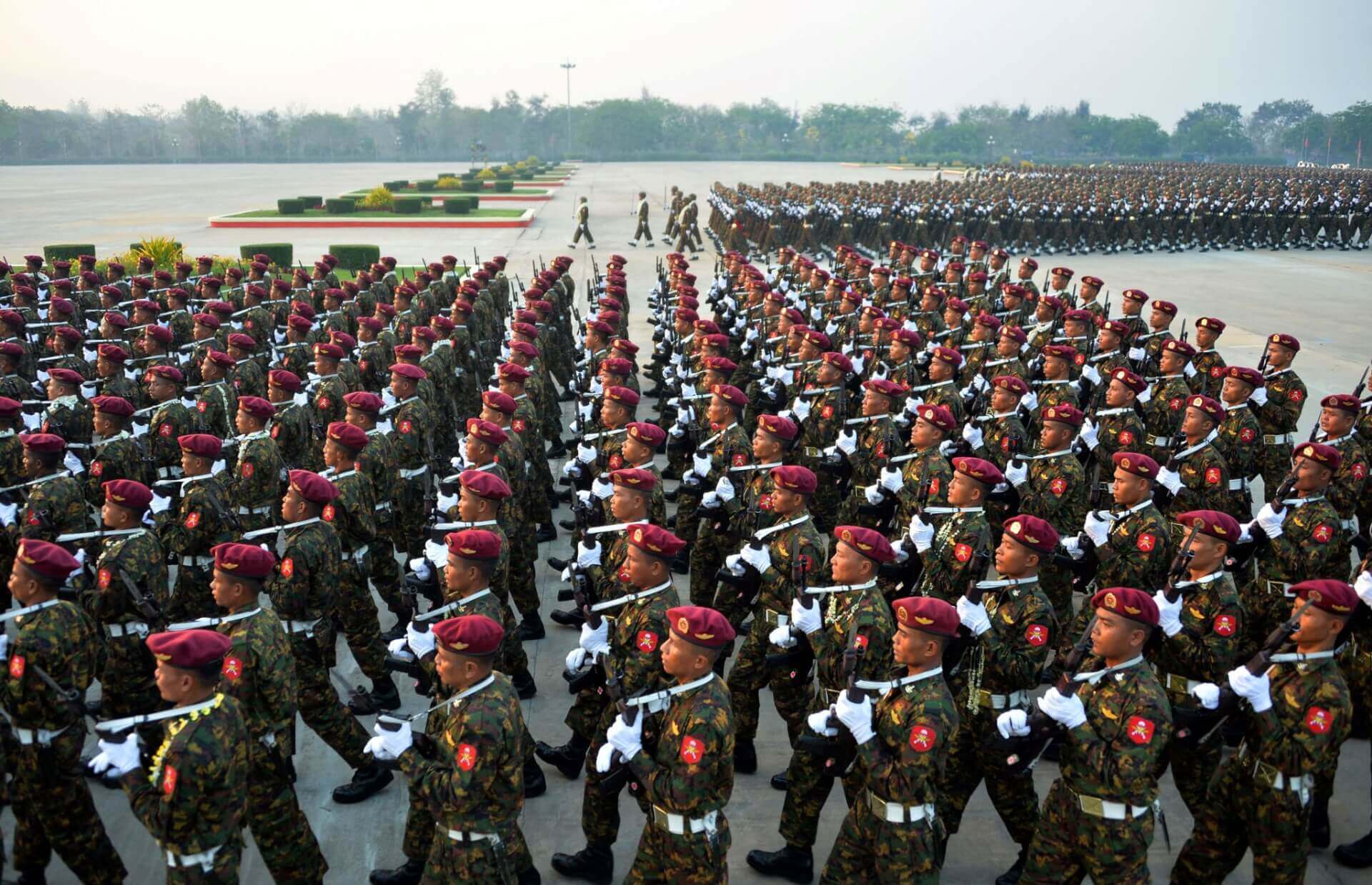The United Nations’ (UN) Special Rapporteur to Myanmar, Thomas Andrews, presented a report to the UN Human Rights council wherein he raised concern about countries continuing to supply arms to Naypyidaw despite substantial evidence of their use in human rights crimes. The UN expert said that the country’s military junta is being supplied with arms from China, Russia, and Serbia.
Andrews stated that China and Russia—both of which are permanent members of the United Nations Security Council (UNSC)—have provided fighter jets and armoured vehicles to the junta. The report mentioned that Moscow had supplied Naypyidaw with drones, two types of fighter jets, and two kinds of armoured vehicles, one with an air defence system. Serbia, meanwhile, has supplied authorised rockets and artillery to the Myanmar military. He added that the arms are being supplied to Myanmar with “full knowledge that they would be used to attack civilians.”
🇲🇲#Myanmar: New report reveals UN Member States #China, #Russia & #Serbia have supplied weapons used against civilians since the military coup. @RapporteurUn calls for a Security Council resolution to urgently stop weapons sales to the military junta: https://t.co/G3pHsVRi2I pic.twitter.com/WFMYzrRllE
— UN Special Procedures (@UN_SPExperts) February 24, 2022
In light of the atrocities and crimes being committed in Myanmar with immunity since last year’s coup, Andrews called for a UNSC meeting on the issue in order to institute a ban on the supply of arms to the military. “It should be incontrovertible that weapons used to kill civilians should no longer be transferred to Myanmar,” he added.
"Enabling Atrocities: UN Member States Arms Transfers to the Myanmar Military". You can't claim to want to help put a fire out while pouring gasoline over the flames. States that won't help Myanmar, should stop profiting from making things worse. https://t.co/l0rtifk6fW pic.twitter.com/DY2ojvx6MD
— UN Special Rapporteur Tom Andrews (@RapporteurUn) February 22, 2022
In fact, The UN General Assembly has already passed a resolution asking member states to halt the supply of arms to Myanmar; however, Russia and China abstained from voting, though Serbia had voted in favour of the resolution. Keeping this in mind, Andrews highlighted that the resolution had not had “any discernible impact on the crisis and the capacity of the junta to launch attacks on civilians.” Therefore, he called for a UNSC resolution that would be binding on all nations. Although Andrews acknowledged that China and Russia could use their veto power to block such a resolution, he asserted that this “should not deter other members from placing a resolution before the Council for consideration, debate and a vote.”
In addition to halting the supply of arms, Andrews also appealed for restrictions to be imposed on the Myanmar military’s access to oil, gas, and foreign exchange reserves. He further called on the UNSC to prevent countries and private entities from purchasing timber and other rare earth products from Myanmar as long as the funds were being collected and utilised by the junta. “If revenues necessary to maintain such a military are reduced, the junta’s capacity to assault and terrorise the people of Myanmar will diminish,” Andrews claimed.
No comment has been made yet on Andrews’ statement from Myanmar’s junta or the Russian Foreign Ministry. However, Chinese Foreign Ministry spokesperson Wang Wenbin said that China “has always advocated that all parties and factions should proceed in the long-term interests of the country” and “resolve contradictions through political dialogue.”
Furthermore, the Serbian foreign ministry denied the claims made in the report, claiming that it had “examined the new situation very carefully and in March last year made a decision not to deliver weapons to [Myanmar] either under previously concluded agreements or new export requests.”
UN reports suggest that over 1,500 civilians have been killed and 300,000 displaced since the military coup on February 1, 2021. However, the military junta in Myanmar has rejected UN “interference” in what it calls the country’s fight against “terrorists.”

